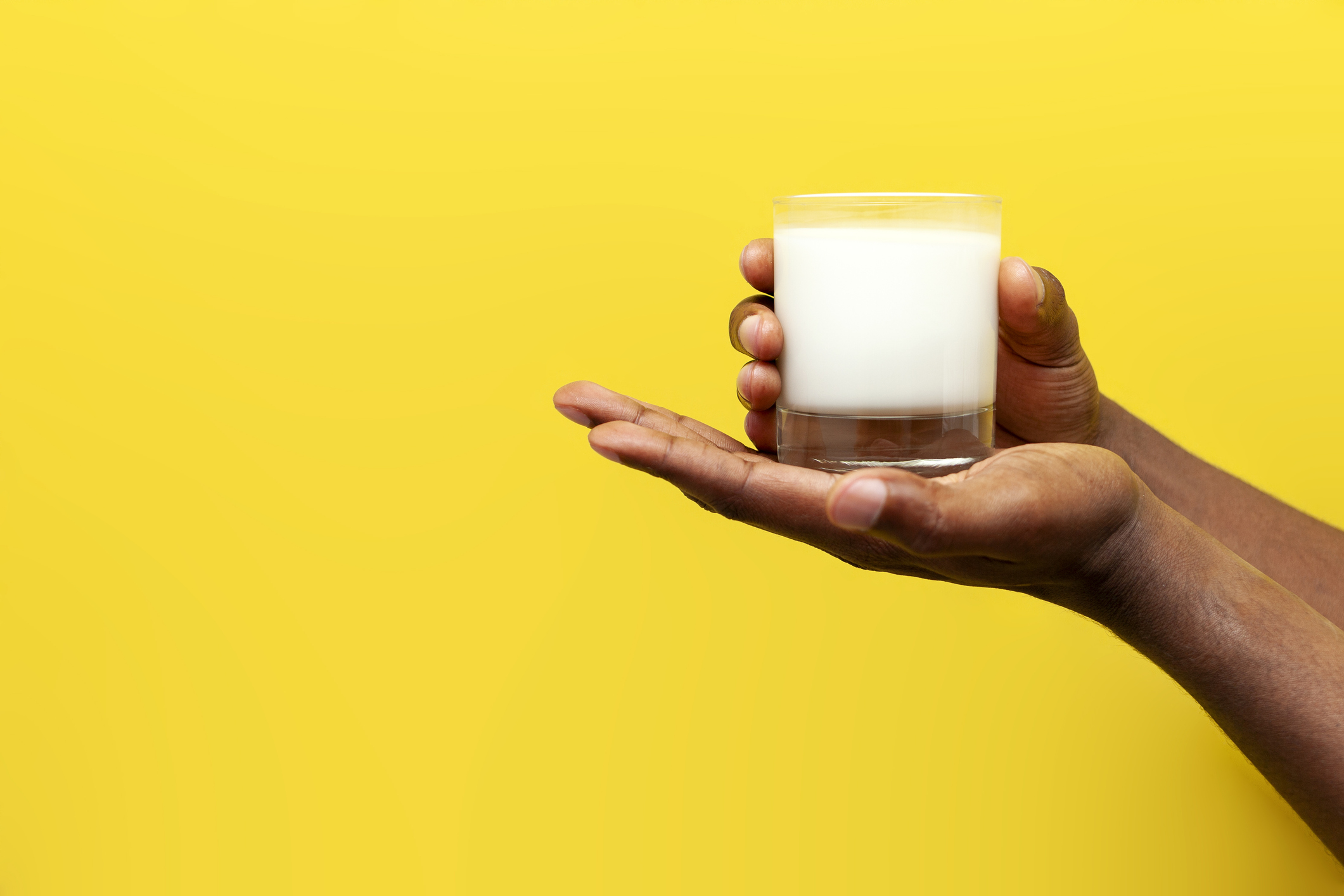

“Got milk?”
“Milk — it does a body good.”
These slogans are probably very familiar to you. They all point to milk as a vital part of a healthy diet. And there’s no doubt that milk can help you boost two important nutrients: calcium and vitamin D.
Milk naturally contains vitamin D but at low levels. That’s why it’s been fortified with vitamin D since the 1930s. As far as calcium though, one glass contains roughly 300 mg of calcium. Still, you would need to drink at least a few glasses daily to get your recommended amount of calcium (anywhere between 700 mg and 1,200 mg, depending on your age and health situation).
However, according to research, there may be more benefits to drinking milk than the nutrients it contains. Studies show it can reduce fracture risk, support heart health and lower the odds of developing metabolic syndrome. And now, there’s evidence it can reduce the risk of a type of cancer that’s growing in prevalence and hitting people at younger ages…
An extra glass to lower cancer risk
The disease is colorectal cancer, and incidence rates for advanced disease have increased by about 3 percent annually in people younger than 50 since around 2010. That’s higher than the 0.5 to 2 percent annual increase in people between 50 and 64 over the same time frame.
Researchers from the University of Oxford in the U.K. examined data from more than 500,000 women to explore possible links between 97 different foods and nutrients to colorectal cancer. The research data spanned an average of 16 years, and what they discovered was fascinating.
Foods containing calcium — including dairy products such as milk and yogurt — were linked with decreased colorectal cancer risk.
In fact, consuming an additional 300 mg of calcium, or the amount found in a large glass of milk, every day could reduce the risk of colorectal cancer by 17 percent.
This proved true regardless of whether the food in question was from dairy or non-dairy sources such as dark leafy green vegetables.
Researchers have a theory as to why calcium has this effect. “It’s suggested that calcium might protect against bowel cancer by binding to bile acids and free fatty acids to form a type of a harmless ‘soap’, which stops them from damaging the lining of our gut,” says Dr. Keren Papier of the University of Oxford, lead researcher of the study.
This “soap” then cleanses these bile and fatty acids out of the gut so they can’t build up and are less likely to cause damage.
According to the study, most women participating were consuming more than 700 mg of calcium a day. However, this could be because they consumed foods supplemented with calcium and some that naturally contained calcium. Calcium is added to products like bread and plant-based milks.
While the current findings are promising, more research is underway to determine whether calcium supplements and calcium-fortified foods have the same effect in reducing colorectal cancer risk as foods that contain calcium naturally. This ongoing research gives us hope for further advancements in cancer prevention.
Keeping your colon healthy
The study uncovered links between other foods and cancer risk that went in the opposite direction…
For instance, drinking an additional 20 g of alcohol, the equivalent of a large glass of wine was found to increase colorectal cancer risk by 15 percent.
To understand how calcium can best be utilized to help prevent colorectal cancer, Papier and her team intend to probe further into calcium’s role in the prevention of the disease in different populations with diverse diets.
In the meantime, adding an extra glass of milk to your diet can’t hurt if you’re looking to reduce colorectal cancer risk. But check with your doctor before adding calcium supplements.
A German study, published in 2012 found a surprising link between calcium supplements and an increased risk of heart disease in women. Among 24,000 people, women who were exclusively taking calcium supplements to meet their recommended daily calcium intake doubled their risk for a heart attack.
Sources:
1. Bowel cancer risk could be reduced with an extra glass of milk — Cancer Research UK
2. Diet-wide analyses for risk of colorectal cancer: prospective study of 12,251 incident cases among 542,778 women in the UK — Nature Communications
3. Vitamin D and Your Bones — New York State Department of Health
4. How much calcium do you really need? — Harvard Health Publishing
5. Colorectal Cancer Facts & Figures 2023-2025 — American Cancer Society